Mental Illness In The Movies: THE END OF EVANGELION
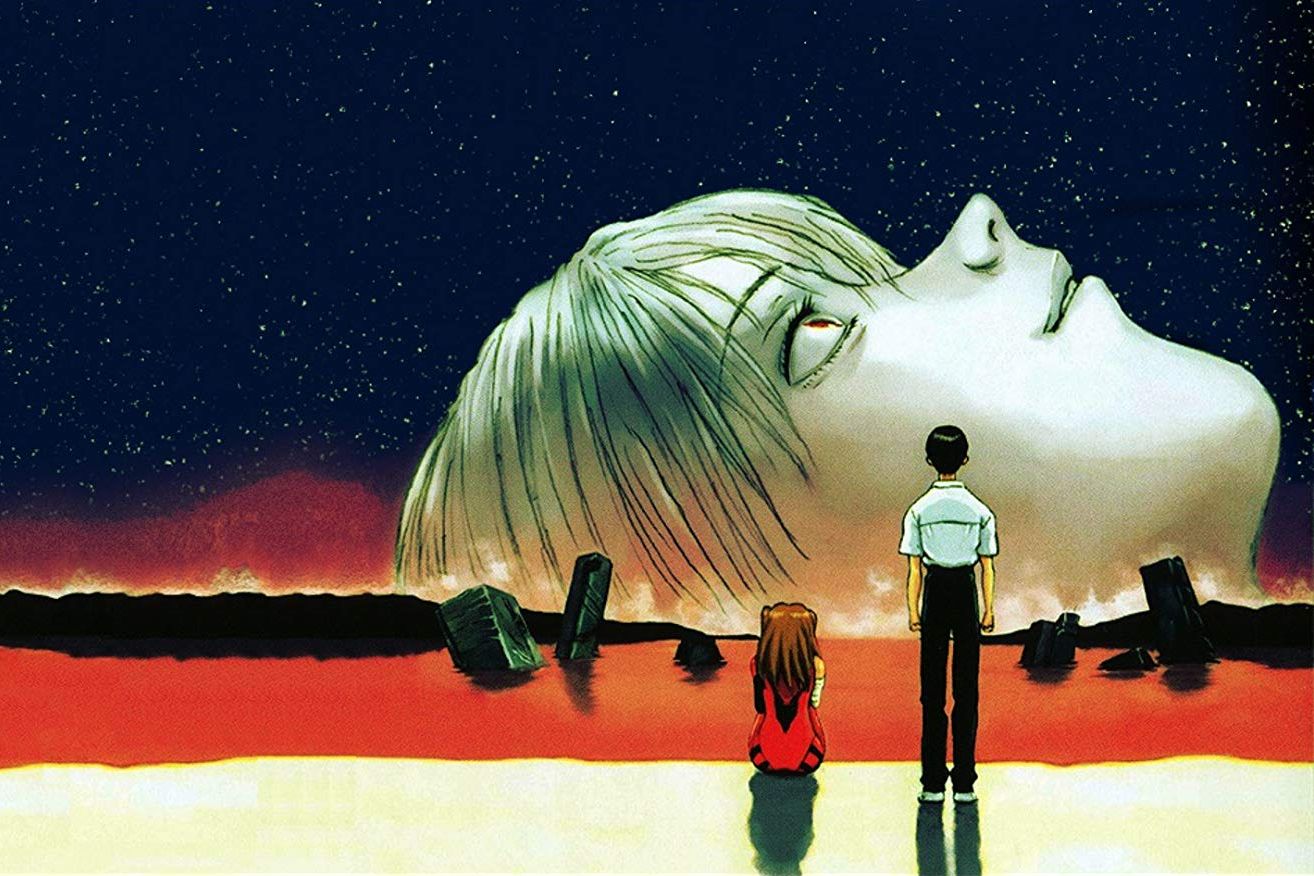
Jack is a writer working in London, spending whatever time…
The general understanding of mental illness has come a long way in the last century. Even in the last decade or so, we have seen the general consensus change, with specific terms making their way into popular vernacular and outdated attitudes uprooted for more progressive ones. However, there is still some way for us to go.
In this series, I’ll be delving into explicit and understated portrayals of mental illness, health, and wellness. There will be those movies that can be interpreted, metaphorically or otherwise, to be saying something about these same issues, and some whose deliberate attempts to portray these aspects I’ll be critiquing. For my part, I’m only one person out of a large spectrum of different experiences, so nothing I say is definitive, but an opportunity to open up discussion.
This time we’re talking about End of Evangelion.
Shinji Ikari
The anime series Neon Genesis: Evangelion (which recently made its Netflix debut) is known for its drip-fed lore and gradual world-building. This complexity leads to a fair amount of head scratching – and is also seen in its concluding movie, End of Evangelion. However, underneath the complicated creation story is something far more simple: Shinji Ikari is depressed.
Shinji is one of the most prominent reluctant protagonists, frequently frozen with indecision and questioning whether he should pilot the EVA Unit-01 robot, a position thrust upon him by adults whose ethics are at best questionable. As the plot reaches its tipping point in the first half of End of Evangelion, the 14-year-old is rendered completely inactive even as his friends and colleague face certain death. “Let me die,” he says. “I don’t want to do anything.”
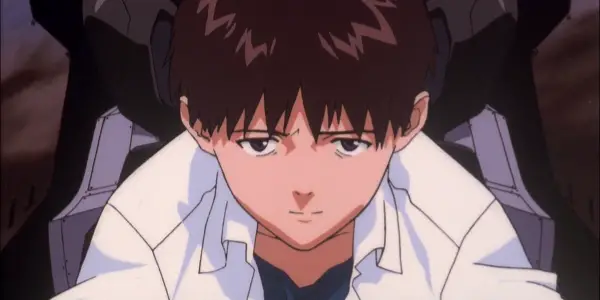
This question is not so much a question over the purpose of the NERV organisation or the fate of humanity, but something that stems from his own lack of self-worth. The film introduces us to Shinji in a scene in which he states, “I am the lowest of the low,” spending the next 40 or so minutes curled up in a ball avoiding the conflict, or being literally dragged around by Misato to complete his mission.
Shinji is stricken by depression even in this extreme scenario, believing that any action he takes will just hurt more people. This is much the same thought process many of us have had on a smaller scale; sat in bed, thinking there’s no point in doing anything because it will only lead to more suffering. “There isn’t a shred of kindness in me – only dishonesty and cowardice,” he tells Misato. “If I can only hurt people, then I’d rather not do anything at all.”
The Hedgehog’s Dilemma
It can often be hard for art to deal with depression because it is inherently not cinematic. A character can lament how worthless they feel, yet the validity of that feeling doesn’t quite get to the heart of the matter. Evangelion answers this by spending time with the feeling, pushing the audience until even the best of us are yelling: “Get in the damn robot, Shinji!”
The series referred to Shinji’s primary problem as “the hedgehog’s dilemma,” in which he is desperate for the approval of others yet terrified of interacting with them. In the mid-90s, the conversation around mental illness was far less evolved than it is now, so the lack of understanding of his behaviour rings true. He’s faced with ignorance, frustration and outright hostility. Thankfully, awareness and sensitivity around such things have improved greatly in the last 20 years, but there are many who face these retrograde attitudes today.
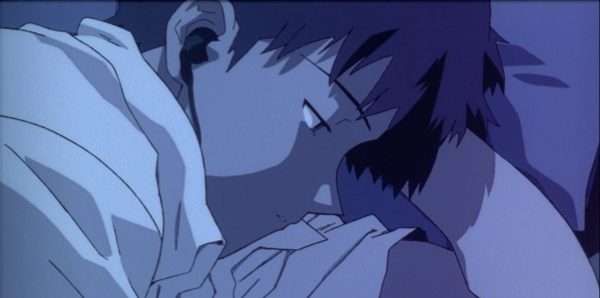
It’s hard to separate Evangelion from its creator, Hideaki Anno. The director has reflected on his battle with mental illness in various interviews, suggesting it had a significant effect on the production of the series and subsequent film. Co-director Kazuya Tsurumaki has said that “Shinji was modelled on director Hideaki Anno,” while the director himself revealed in one fan-translated interview that towards the end of the series he “rapidly developed a severe depression” and “seriously contemplated death”.
In a statement of intent written in 1995, Anno wrote:
“I tried to include everything of myself in Neon Genesis Evangelion – myself, a broken man who could do nothing for four years. A man who ran away for four years, one who was simply not dead. Then one thought. ‘You can’t run away,’ came to me, and I restarted this production. It is a production where my only thought was to burn my feelings into film.”
End of Evangelion is not so much a statement on mental illness or a psychoanalytic take on the subject matter, but a representation of the feeling of depression and the interior battles that take place. The production obviously involved the work of hundreds of creatives, but it Anno’s choice to “burn my feelings into film” made it a personal movie too.
Cruel Angel’s Thesis
The conclusion is where the film becomes increasingly provocative, both in its daring experimental visuals and its cruel treatment of its characters. Anno referred to this perspective as a “world-view drenched in a vision of pessimism, a world-view where the story starts only after any traces of optimism have been removed”. Once Shinji is driven to action, he soon faces unspeakable horrors and gut-wrenching choices for the future of humanity.
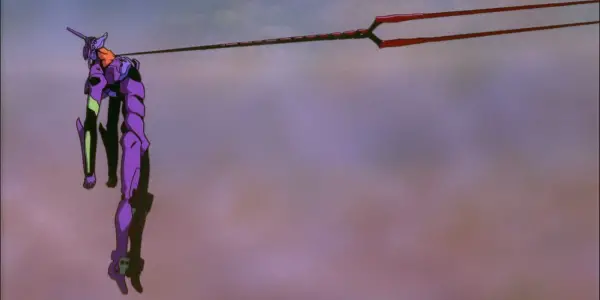
The antagonists of the film seek to use Shinji and his EVA to bring about the ‘Instrumentality’, in which all human life will be made one, free of the pain and suffering that division brings. When Shinji is given the chance to decide, it boils down to the questions he’s been wrestling with: Is life worth living? Does he want to interact with humanity? Does he deserve to live? Beneath the operatic action and surreal visuals, the movie reflects Anno’s own contemplation of death and existential consideration of suicide.
The original series ended with similar questions being asked – albeit with a far different conclusion. Those final two episodes saw the production struggling with a limited budget, diving into an abstract psychological reckoning that effectively resolved Shinji’s emotional arc, even as it ignored the world outside of it. Given the degree to which it side-stepped its numerous unresolved plot threads, it was far from popular with the fanbase. With End of Evangelion, more attention is paid to concluding the story, but Shinji’s happy ending is replaced with something far more brutal.
Komm, süsser Tod
Shinji eventually rejects the Instrumentality, choosing to feel true reality rather than lose himself in the unification of a “substitute for reality”. The unique route that Evangelion takes is to show that when Shinji does overcome his paralysis and take action, he really does see real horror and suffering, and his actions do have terrible consequences. He awakens alongside Asuka in a desolate landscape torn apart by his decision, his tormented psyche represented in the bloodied fragments of the fate he refused.
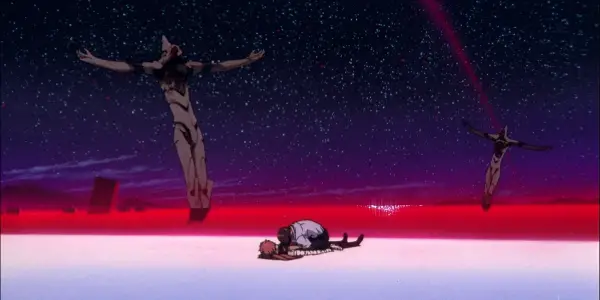
Shinji strangles Asuka, but after she caresses his face he instead tearfully embraces her, choosing empathy and contact over hostility and violence. That’s when Asuka utters the film’s final words, most commonly translated as “how disgusting”. Shinji faces his fears, making himself vulnerable and expressing affection, only for that emotional risk being met with plain disgust. It’s the kind of worst-case scenario that depression convinces you will happen if you make contact – that if you show yourself to someone, they’ll reject you; that you’re not good enough.
Some have translated the same line as “I feel sick,” a fairly mundane expression of a physical feeling; the kind of feeling Shinji chose to embrace instead of the instrumentality. Life means feeling sickness, means a world with disgust as well as love, joy, and other more positive emotions. Shinji decides it’s all worth it, because he wants to see the people in his life again and experience those feelings.
While some view this ending to be mean-spirited in its nihilism, I believe there is a glimmer of hope amidst the desolation – just one grounded in realism. The journey isn’t over once you decide to embrace others, or judge that life is worth living. Realising “you can’t run away” from your problems isn’t a complete answer. Even in the ruins of his world, Shinji still has the opportunity to find meaning and pursue “the hope that people might be able to understand one another”. As his mother, Yui, tells him: “After all, we’re alive – opportunities for happiness are everywhere”.
Do you think the ending has any sense of hope? Please share your thoughts in the comments!
Does content like this matter to you?
Become a Member and support film journalism. Unlock access to all of Film Inquiry`s great articles. Join a community of like-minded readers who are passionate about cinema - get access to our private members Network, give back to independent filmmakers, and more.
Jack is a writer working in London, spending whatever time he has left over watching, over-analyising, and talking about movies.













